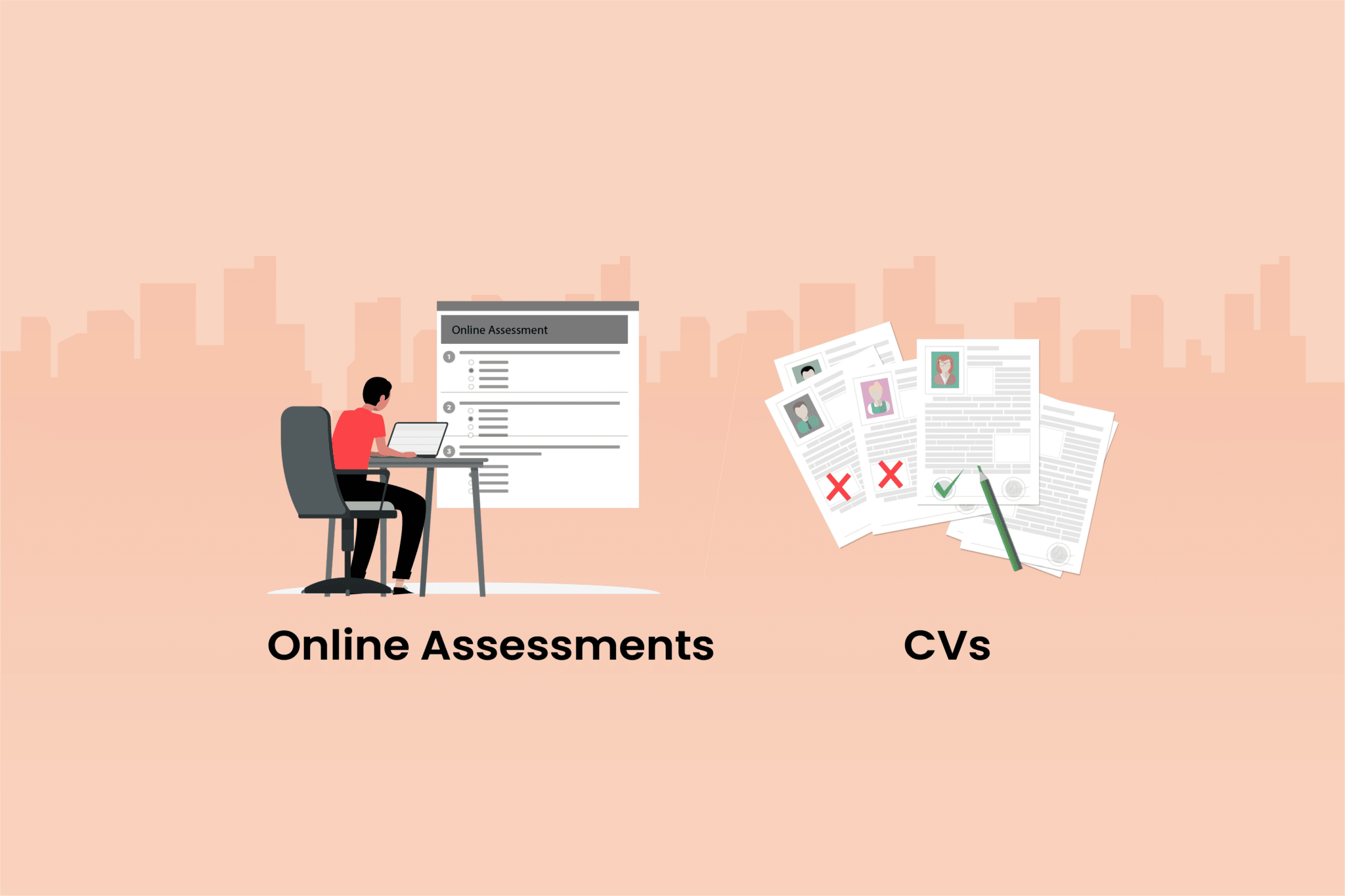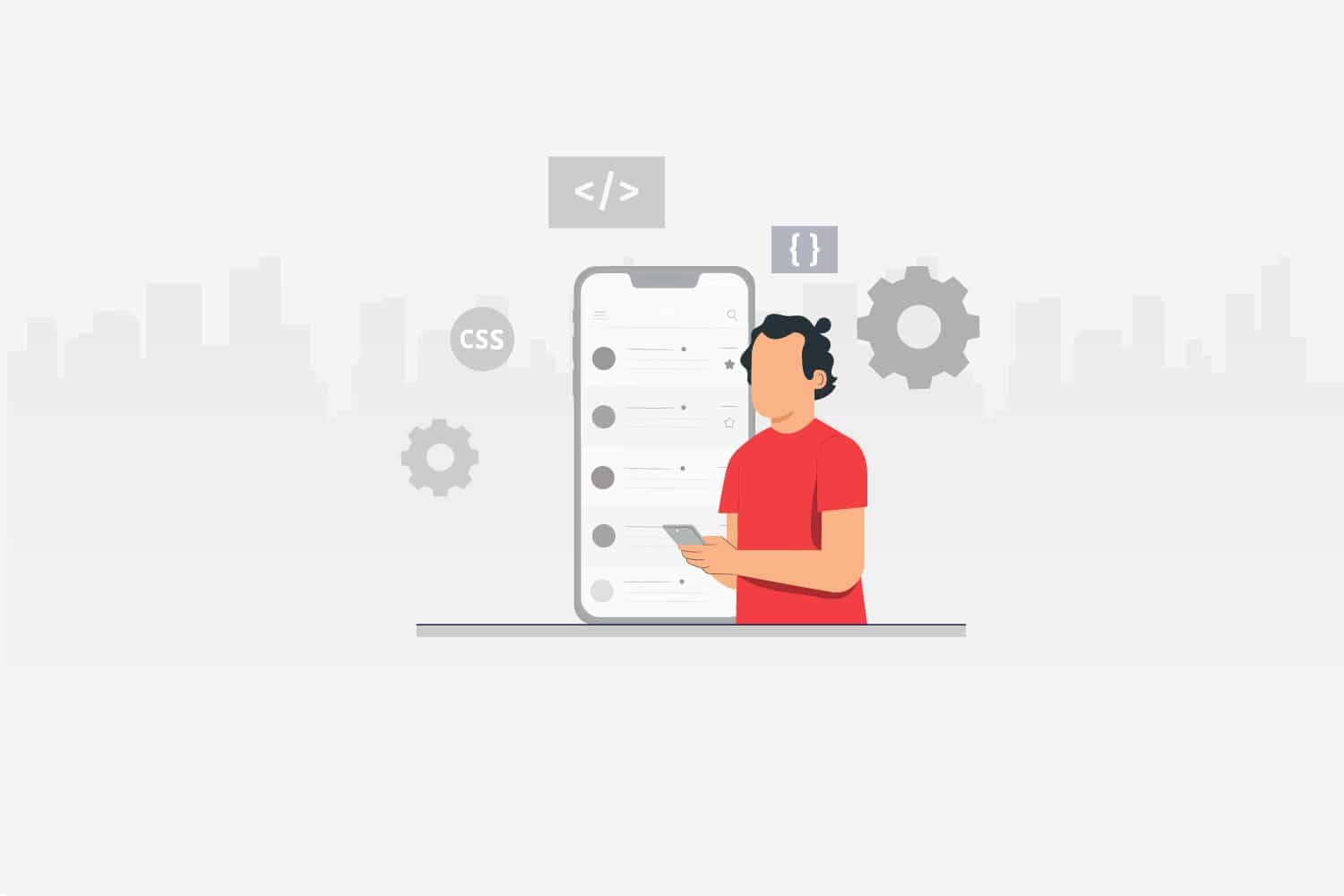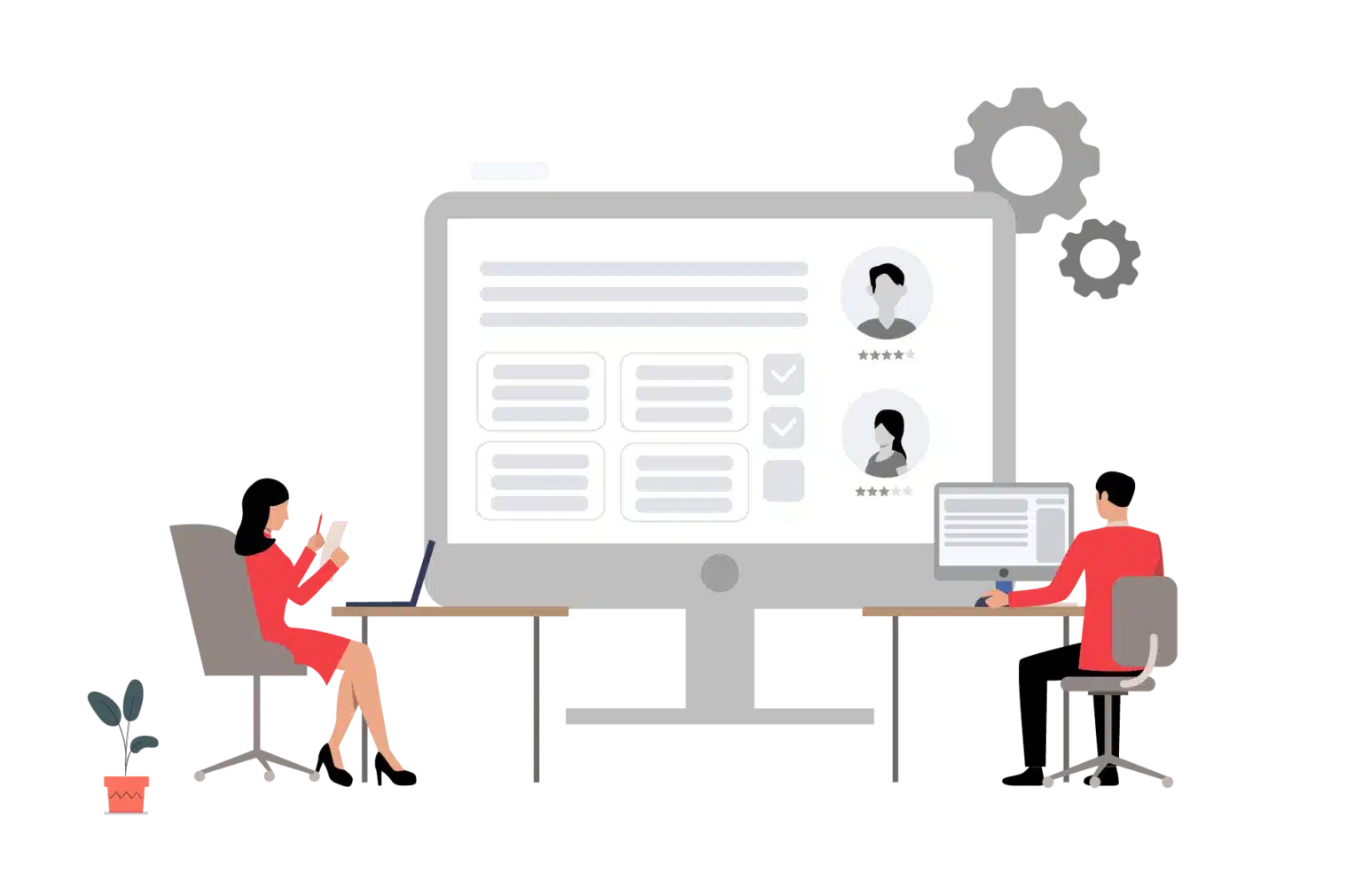In today’s rapidly evolving business landscape, the role of a Market Research Assistant has gained significant prominence. As organizations strive to gain a competitive edge, the need for robust market insights and data-driven decision-making has become paramount. The recruiting trend for Market Research Assistants has witnessed a remarkable upsurge, driven by the increasing recognition of the pivotal role they play in shaping strategic initiatives.
According to recent analytics, companies across various industries are actively seeking talented professionals to support their market research efforts. In this dynamic environment, HR professionals and CXOs are keenly aware of the value that Market Research Assistants bring to the table, leveraging their expertise to unlock new opportunities and drive business growth.
Here are the top 60 Market Research Assistant interview questions to ask job applicants:
15 general interview questions for the Market Research Assistant
- Can you provide an overview of your experience in conducting market research and analysis?
- What methodologies and tools do you typically use to gather market data?
- How do you ensure the accuracy and reliability of the data you collect?
- Can you describe a challenging market research project you have worked on? What were the key obstacles and how did you overcome them?
- How do you stay updated on the latest market trends and competitor analysis?
- How do you determine the appropriate sample size for a research study?
- Can you explain your process for identifying target demographics and conducting audience segmentation?
- Have you utilized any data visualization tools to present market research findings? If so, which ones?
- Can you provide examples of how you have used qualitative and quantitative research methods in combination to gain comprehensive insights?
- How do you ensure the confidentiality and security of sensitive market research data?
- How do you approach data analysis and interpretation to derive actionable insights?
- Can you share an example of a successful market research project you have contributed to, and the impact it had on the organization?
- How do you effectively communicate complex market research findings to stakeholders who may not have a background in research?
- Describe a time when you had to prioritize multiple research projects with conflicting deadlines. How did you manage your time and resources?
- What steps do you take to continuously improve your market research skills and stay updated on industry best practices?
5 sample answers to general interview questions for the Market Research Assistant
- Can you provide an overview of your experience in conducting market research and analysis?
Look for: Look for candidates who can demonstrate their hands-on experience in planning and executing market research projects.
Example answer: “Throughout my career, I have successfully conducted various market research projects, including customer satisfaction surveys, competitor analysis, and market segmentation studies. In my previous role, I led a team in conducting a comprehensive market research project to identify new market opportunities for our company. This involved designing surveys, analyzing data using statistical software, and presenting actionable insights to the management team.”
- How do you stay updated on the latest market trends and competitor analysis?
Look for: Look for candidates who show a proactive approach to staying informed and continuously learning about industry developments.
Example answer: “To stay updated on market trends and competitor analysis, I regularly read industry publications, attend webinars, and participate in professional networking events. I also subscribe to relevant newsletters and follow thought leaders on social media platforms. Additionally, I utilize online tools and platforms to monitor competitors’ activities, track industry news, and analyze market data.”
- How do you ensure the accuracy and reliability of the data you collect?
Look for: Look for candidates who emphasize the importance of data quality and demonstrate their ability to implement quality control measures.
Example answer: “Ensuring data accuracy and reliability is crucial in market research. I employ various measures to achieve this, such as designing well-structured surveys with clear questions, using random sampling techniques, and employing data validation checks. Additionally, I meticulously review and clean the collected data, checking for outliers and inconsistencies. I also conduct reliability tests to validate the survey instruments and minimize measurement errors.”
- Can you explain your process for identifying target demographics and conducting audience segmentation?
Look for: Look for candidates who can articulate a systematic approach to identifying target demographics and segmenting audiences effectively.
Example answer: “When identifying target demographics and conducting audience segmentation, I begin by thoroughly researching the market and analyzing available data. I consider factors such as age, gender, geographic location, income levels, and psychographic characteristics. I also conduct focus groups and interviews to gain deeper insights. Based on the collected data, I segment the audience into distinct groups with common characteristics, allowing for targeted messaging and more effective marketing strategies.”
- How do you approach data analysis and interpretation to derive actionable insights?
Look for: Look for candidates who can demonstrate their analytical skills and explain their process for extracting meaningful insights from data.
Example answer: “To approach data analysis and interpretation, I first familiarize myself with the research objectives and hypotheses. I then use statistical software to clean and analyze the data, applying appropriate statistical techniques such as regression analysis, correlation analysis, and clustering algorithms. I pay attention to key patterns, trends, and significant findings. Finally, I synthesize the results, create data visualizations, and provide clear, actionable insights to stakeholders, ensuring that they understand the implications for decision-making.”
15 behavioral interview questions for a Market Research Assistant
- Describe a time when you had to handle a large dataset for a market research project. How did you manage and analyze the data effectively?
- Can you give an example of a situation where you had to work collaboratively with other team members or departments to gather market research insights? How did you ensure effective communication and coordination?
- Tell me about a time when you faced challenges in recruiting participants for a research study. How did you overcome those challenges and ensure an adequate sample size?
- Share an experience when you had to adapt your research methodology or approach due to unexpected changes in the market landscape or industry trends.
- Describe a time when you utilized both qualitative and quantitative research methods to gather comprehensive insights for a project. How did you integrate and analyze the data from both approaches?
- Can you give an example of a time when you had to present complex market research findings to stakeholders who had limited knowledge of research concepts? How did you ensure they understood the information and its implications?
- Tell me about a situation where you had to handle multiple research projects simultaneously with tight deadlines. How did you prioritize your tasks and manage your time effectively?
- Share an experience where you had to navigate through a project with limited resources or budget constraints. How did you ensure the quality and success of the research despite these limitations?
- Describe a time when you encountered unexpected obstacles or roadblocks during a market research project. How did you identify the issues and develop alternative solutions?
- Tell me about a time when you identified a significant market opportunity through your research. How did you communicate this opportunity to the management team and contribute to the development of a strategic plan?
- Share an experience when you conducted competitive analysis and identified key insights that helped your organization gain a competitive edge. How did you ensure the accuracy and relevance of the findings?
- Describe a situation where you had to deal with sensitive or confidential market research data. How did you ensure the privacy and security of the information?
- Tell me about a time when you had to present a research proposal or project plan to secure funding or approval. How did you effectively communicate the value and potential impact of the research?
- Share an experience when you had to conduct market research in a new or unfamiliar industry. How did you quickly familiarize yourself with the industry landscape and gather relevant insights?
- Describe a time when you made a mistake during a market research project. How did you handle the situation and what did you learn from it?
5 sample answers to behavioral interview questions for the Market Research Assistant
- Describe a time when you had to handle a large dataset for a market research project. How did you manage and analyze the data effectively?
Look for: Look for candidates who can demonstrate their proficiency in data management, analysis, and attention to detail.
Example answer: “In a recent market research project, I was tasked with analyzing a large dataset consisting of customer feedback survey responses. To manage the data effectively, I first developed a systematic approach to clean and organize the data, ensuring accuracy and completeness. I used data visualization tools to identify patterns and conducted statistical analysis to uncover correlations and insights. By breaking down the dataset into meaningful segments and leveraging appropriate analytical techniques, I was able to derive actionable insights that informed our marketing strategy.”
- Can you give an example of a situation where you had to work collaboratively with other team members or departments to gather market research insights? How did you ensure effective communication and coordination?
Look for: Look for candidates who can demonstrate their teamwork and communication skills, as well as their ability to collaborate across departments.
Example answer: “In a previous project, I collaborated with the sales and product development teams to gather market research insights for a new product launch. We conducted focus groups, customer interviews, and surveys to understand customer preferences and market trends. To ensure effective communication and coordination, I scheduled regular meetings with team members, shared project updates, and encouraged open dialogue to exchange ideas and insights. By establishing clear channels of communication and aligning our efforts, we were able to gather valuable insights that shaped the product’s features and marketing strategy.”
- Share an experience when you had to adapt your research methodology or approach due to unexpected changes in the market landscape or industry trends.
Look for: Look for candidates who can demonstrate flexibility, adaptability, and problem-solving skills when faced with unexpected challenges.
Example answer: “During a market research project, I encountered a sudden shift in consumer behavior due to a disruptive technology entering the market. Recognizing the need to adapt our research methodology, I swiftly modified our survey questions and interview guides to capture emerging trends. I also conducted additional desk research to understand the impact of the new technology on the market. By remaining agile and proactive in adjusting our research approach, we were able to gather up-to-date and relevant insights that provided valuable guidance for our client’s strategic decision-making.”
- Describe a time when you had to present complex market research findings to stakeholders who had limited knowledge of research concepts. How did you ensure they understood the information and its implications?
Look for: Look for candidates who can effectively communicate complex information in a clear and concise manner, tailoring their approach to the audience’s level of understanding.
Example answer: “In a project where I had to present complex market research findings to senior executives, I recognized the need to simplify the information without losing its essence. I prepared visually engaging data visualizations and used plain language to explain the key findings, avoiding technical jargon. I also provided real-world examples and practical implications to illustrate the significance of the insights. By focusing on clarity, relevance, and using relatable examples, I ensured that the stakeholders understood the research findings and could make informed decisions based on the insights.”
- Tell me about a situation where you had to handle multiple research projects simultaneously with tight deadlines. How did you prioritize your tasks and manage your time effectively?
Look for: Look for candidates who can demonstrate strong organizational and time management skills, as well as their ability to work efficiently under pressure.
Example answer: “During a particularly busy period, I was responsible for managing multiple market research projects with overlapping deadlines. To prioritize my tasks effectively, I first assessed the urgency and importance of each project. I created a detailed project timeline, breaking down the tasks into smaller, manageable chunks. I also collaborated with team members to delegate responsibilities and ensure a smooth workflow. By leveraging project management tools and maintaining clear communication with stakeholders, I successfully met all deadlines while delivering high-quality research outcomes.”
15 personality interview questions for the Market Research Assistant
- How do you handle ambiguity and uncertainty in your work?
- Describe a time when you had to think creatively to solve a problem or overcome a research challenge.
- How do you approach tasks that require attention to detail and meticulousness?
- Tell me about a situation where you had to work independently with minimal supervision. How do you stay motivated and accountable?
- Describe your approach to managing and prioritizing multiple projects or deadlines.
- How do you handle constructive feedback or criticism on your research work?
- Tell me about a time when you had to navigate conflicting priorities or demands from different stakeholders. How did you manage the situation?
- Describe your communication style and how you ensure effective collaboration with team members or clients.
- How do you stay updated on the latest market research methodologies, industry trends, and emerging technologies?
- Describe a situation where you had to quickly adapt to changes in project scope or requirements. How did you handle it?
- How do you maintain confidentiality and ethical standards when dealing with sensitive market research data?
- Describe your problem-solving approach when faced with complex research questions or challenges.
- How do you handle tight deadlines and time pressure without sacrificing the quality of your work?
- Tell me about a time when you had to influence or persuade others to adopt a particular research approach or strategy.
- How do you manage stress and maintain a work-life balance in a fast-paced and demanding market research environment?
5 sample answers to personality interview questions for Market Research Assistant
- How do you handle ambiguity and uncertainty in your work?
Look for: Look for candidates who can demonstrate their ability to adapt and make decisions in uncertain situations.
Example answer: “I thrive in ambiguous situations by embracing them as opportunities for growth and learning. When faced with uncertainty, I take a proactive approach by gathering as much information as possible, consulting relevant resources, and seeking guidance from experienced colleagues. I am comfortable making informed decisions based on the available data and adjusting my course of action as new information emerges. By maintaining a flexible mindset and remaining focused on the ultimate goal, I can navigate through ambiguity and deliver accurate and insightful research outcomes.”
- How do you approach tasks that require attention to detail and meticulousness?
Look for: Look for candidates who emphasize their meticulousness and commitment to delivering high-quality work.
Example answer: “I have a keen eye for detail and take pride in ensuring the accuracy and precision of my work. To approach tasks that require meticulousness, I develop a systematic approach that includes thorough research, careful data collection, and rigorous data analysis. I pay close attention to the small details, double-check my work, and use tools like data validation checks and proofreading to minimize errors. By maintaining a high standard of quality, I can confidently present research findings that are reliable and trustworthy.”
- How do you handle tight deadlines and time pressure without sacrificing the quality in your work?
Look for: Look for candidates who can demonstrate their ability to effectively manage time and handle pressure while maintaining quality standards.
Example answer: “I excel in managing tight deadlines by employing effective time management strategies. When faced with time pressure, I first assess the scope of the project and break it down into smaller, manageable tasks. I prioritize the tasks based on urgency and importance, creating a realistic timeline. I also ensure open communication with team members or stakeholders, setting clear expectations and updating them on progress. By staying organized, staying focused, and seeking support when needed, I can deliver high-quality work within the given time constraints.”
- Describe a situation where you had to work independently with minimal supervision. How do you stay motivated and accountable?
Look for: Look for candidates who demonstrate their self-motivation, accountability, and ability to work autonomously.
Example answer: “In my previous role, I was assigned a market research project where I had to work independently with minimal supervision. To stay motivated and accountable, I established clear goals and milestones for the project. I created a detailed project plan with deadlines for each task, allowing me to track my progress. I set personal targets and rewards to maintain my motivation throughout the project. Additionally, I regularly communicated updates and sought feedback from stakeholders, ensuring that I remained accountable for my work. By adopting a proactive mindset and taking ownership of my responsibilities, I successfully completed the project with satisfactory results.”
- How do you handle constructive feedback or criticism on your research work?
Look for: Look for candidates who demonstrate their ability to receive feedback positively and use it as an opportunity for growth.
Example answer: “I value constructive feedback as a valuable tool for professional development. When receiving feedback or criticism on my research work, I actively listen and remain open-minded, refraining from taking it personally. I see it as an opportunity to improve and refine my skills. I ask clarifying questions to ensure a thorough understanding of the feedback and seek suggestions for improvement. I then take proactive steps to implement the feedback, making necessary adjustments to my research methodologies or approaches. By embracing feedback as a means to grow and enhance the quality of my work, I strive for continuous improvement.”
When should you use skill assessments in your hiring process for Market Research Assistant?
Skill assessments should be used in the hiring process for Market Research Assistants to effectively evaluate candidates’ abilities and ensure they possess the necessary skills for the role. Assessments are important because they provide objective and standardized measures of a candidate’s competencies, going beyond what can be gleaned from resumes and interviews alone. By using assessments, employers can make informed decisions based on quantifiable data, increasing the likelihood of selecting candidates who will excel in the position.
Several assessments can be used to assess the skills of Market Research Assistants. These may include:
- Data analysis assessments
These evaluate candidates’ proficiency in handling and analyzing data, including their knowledge of statistical analysis techniques and software.
- Research design assessments
These assess candidates’ understanding of research methodologies, their ability to develop research plans, and their aptitude for identifying relevant data sources.
- Communication assessments
These measure candidates’ written and verbal communication skills, including their ability to convey complex research findings in a clear and concise manner.
- Problem-solving assessments
These evaluate candidates’ critical thinking and problem-solving skills, assessing their ability to approach research challenges and generate innovative solutions.
- Technology assessments
These gauge candidates’ familiarity with market research tools, software, and data visualization platforms commonly used in the field.
By incorporating skill assessments into the hiring process, employers can ensure they are selecting candidates who possess the necessary skills to perform effectively as Market Research Assistants. This not only increases the chances of hiring the right candidate but also saves time and resources by reducing the risk of hiring individuals who may not meet the required skill level for the role.
Use our interview questions and skill tests to hire talented Market Research Assistants
Unlock the potential of your hiring process with Testlify’s comprehensive skill assessments and interview questions specifically designed for Market Research Assistants.
Our extensive test library offers a wide range of assessments, including cognitive function, personality, situational judgment, programming, and more. By leveraging these assessments, you can objectively evaluate candidates’ abilities, ensuring you shortlist the most talented individuals efficiently.
To further enhance your hiring process, we invite you to book a free 30-minute live demo. Our expert team will guide you through the platform, showcasing relevant skill tests tailored to your hiring needs. With our support, you can streamline candidate selection, saving valuable time and resources.
Ready to find the perfect fit for your Market Research Assistant role? Testlify provides the tools you need to make informed hiring decisions. Explore our skill assessments and interview questions today to uncover exceptional talent for your team.








